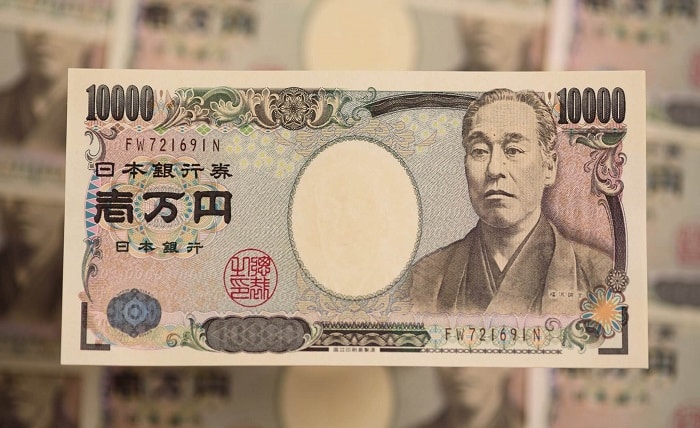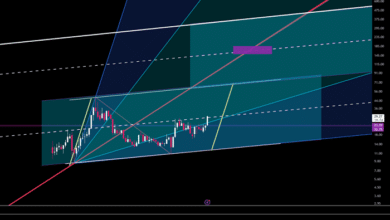Japanese Yen JPY: A Comprehensive Guide

Introduction
The Japanese Yen (JPY) is one of the most widely recognized and traded currencies in the world. As the official currency of Japan, it plays a crucial role in the global economy. This blog post delves into the various facets of the JPY, providing insights into its history, significance, and practical tips for those dealing with this currency.
History of the Japanese Yen (JPY)
The Japanese Yen (JPY) was introduced in 1871 as part of the Meiji government’s efforts to modernize the country’s economy. Before the JPY, Japan used a complex system of currency with coins of different regions. The introduction of the JPY standardized the currency system and facilitated trade and economic growth.
Importance of JPY in the Global Economy
The JPY is the third most traded currency in the world, following the US Dollar (USD) and the Euro (EUR). Its significance is attributed to Japan’s robust economy, technological advancements, and strong export market. The JPY serves as a benchmark currency in the forex market and is often used as a safe haven during times of economic instability.
Exchange Rate Mechanisms of JPY
Understanding the exchange rate mechanisms of the JPY is crucial for traders and investors. The JPY exchange rate is influenced by various factors, including Japan’s economic performance, interest rates set by the Bank of Japan, and geopolitical events. Keeping an eye on these factors can help predict JPY movements and make informed trading decisions.
JPY and the Forex Market
In the forex market, the JPY is known for its liquidity and volatility. Traders often pair the JPY with other major currencies like the USD, EUR, and GBP. Popular pairs include USD/JPY and EUR/JPY. The JPY’s performance can be influenced by market sentiment, making it a favorite among traders looking to capitalize on short-term price movements.
JPY and Japan’s Economy
Japan’s economy heavily influences the value of the JPY. As the third-largest economy in the world, Japan’s industrial output, technological innovations, and export activities play a significant role. Factors like GDP growth, inflation rates, and trade balances are closely monitored to understand their impact on the JPY.
Investing in JPY Assets
Investing in JPY assets, such as Japanese stocks, bonds, and real estate, can be a strategic move for diversifying a portfolio. The stability of Japan’s economy and the strength of the JPY make these assets attractive to investors. Additionally, understanding the dynamics of JPY can help in hedging against currency risk.
Traveling to Japan: Currency Tips
When traveling to Japan, understanding the JPY is essential for a smooth experience. Currency exchange rates, the availability of ATMs, and the acceptance of credit cards vary across the country. It’s advisable to carry some JPY in cash, especially when visiting rural areas where electronic payments might not be as prevalent.
JPY in the Digital Age
The rise of digital currencies and fintech innovations is influencing the traditional financial landscape, including the JPY. The Bank of Japan has been exploring the possibility of a digital yen. Understanding these developments is crucial for staying updated with how JPY might evolve in the future.
JPY and International Trade
The JPY plays a pivotal role in international trade, particularly in Asia. Japan’s major trading partners include China, the United States, and the European Union. The JPY’s exchange rate can affect trade balances and the competitiveness of Japanese exports, influencing global trade dynamics.
Future Outlook of the JPY
The future outlook of the JPY will be shaped by various factors, including Japan’s economic policies, demographic changes, and global economic conditions. While the JPY has traditionally been seen as a stable currency, ongoing economic challenges and innovations in financial technologies will influence its trajectory.
Conclusion
The Japanese Yen JPY remains a cornerstone of the global financial system. Its rich history, significant role in the forex market, and impact on Japan’s economy make it a vital currency to understand. Whether you are a trader, investor, or traveler, having a comprehensive knowledge of the JPY will enhance your financial literacy and decision-making.
FAQs
1. What is the symbol for the Japanese Yen (JPY)? The symbol for the Japanese Yen is ¥.
2. Why is the JPY considered a safe haven currency? The JPY is considered a safe haven currency due to Japan’s strong economy and political stability, making it attractive during times of economic uncertainty.
3. How does the Bank of Japan influence the JPY? The Bank of Japan influences the JPY through its monetary policy, including setting interest rates and engaging in currency market interventions.
4. What are some popular JPY currency pairs for trading? Popular JPY currency pairs for trading include USD/JPY, EUR/JPY, and GBP/JPY.
5. Is it necessary to carry cash (JPY) when traveling to Japan? Yes, it is advisable to carry some cash in JPY when traveling to Japan, especially in rural areas where electronic payments may not be widely accepted.



